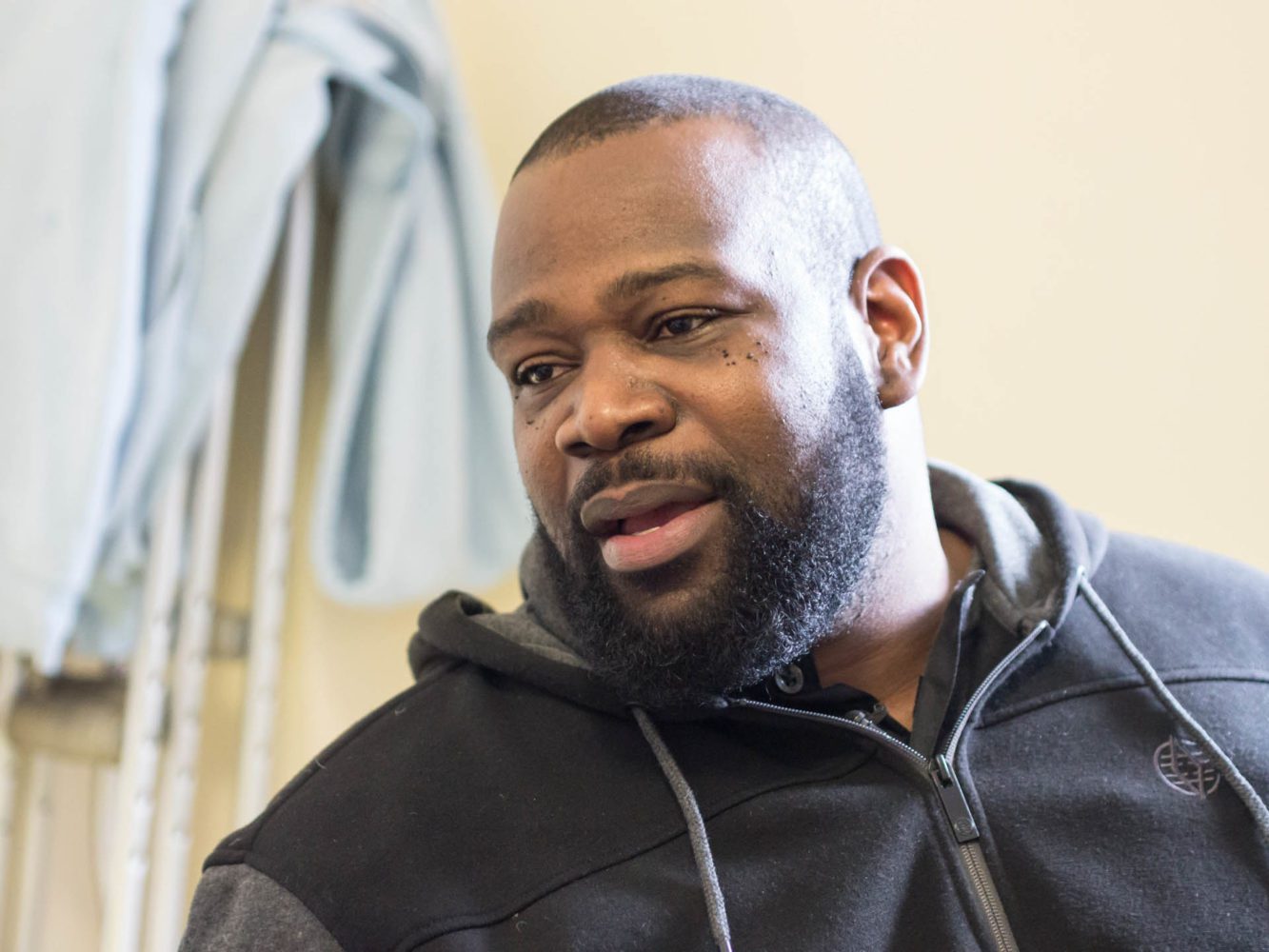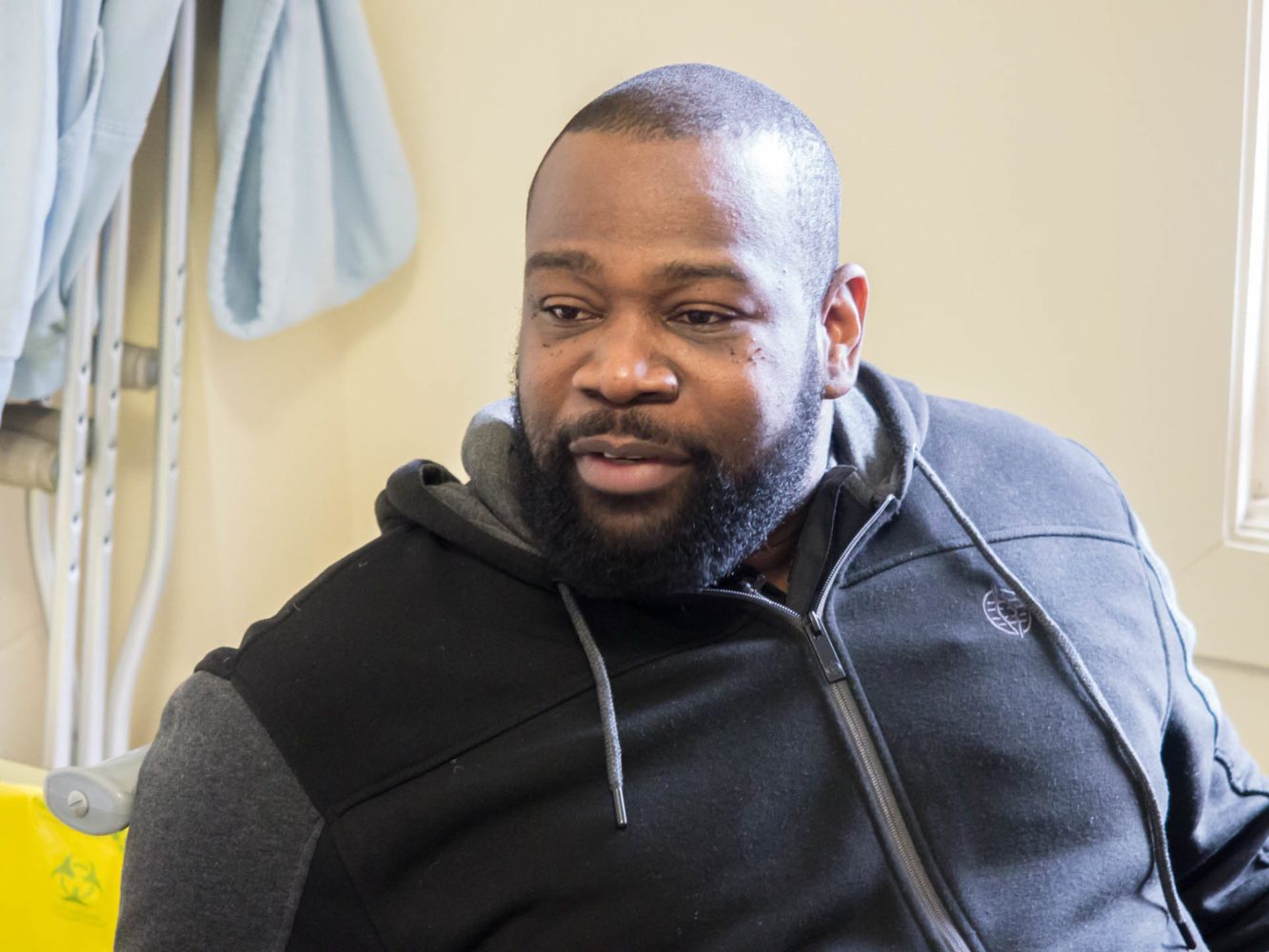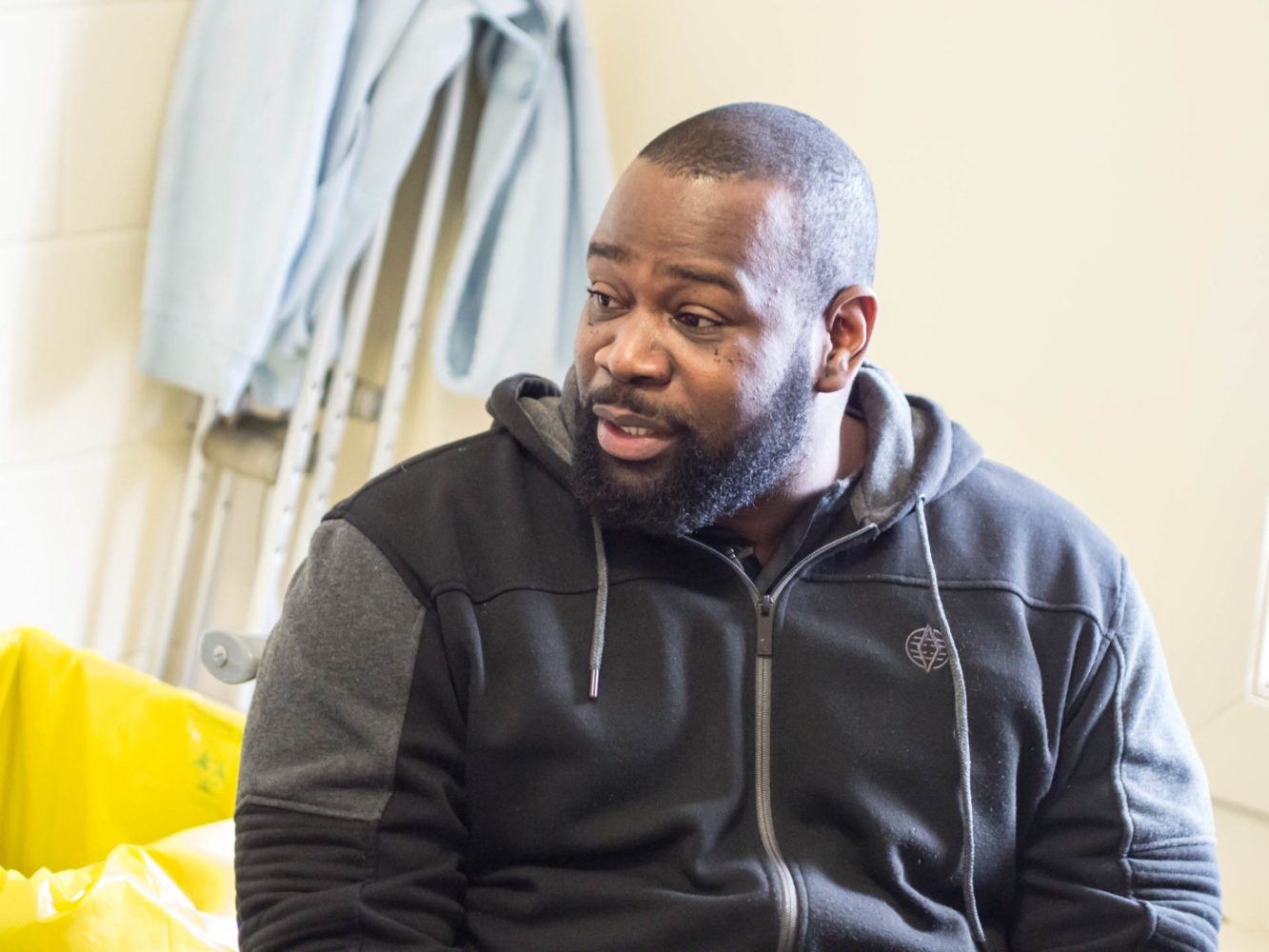Frantzy is a personal support worker in an Ottawa homeless shelter caring for men recovering from an acute illness who need ongoing health care support.
“I moved to Canada from Haiti in 2003. I used to come for vacation and I kind of fell in love with Canada. I had family members here so I decided to move. I knew it would be a little bit better for me to get work. And eventually go to school if I needed to. Life is better. Life is way better. If you are willing to work hard, you can succeed in life.
“I was 24 years old when I came. I studied to be a personal support worker. Most of my relatives here work at the hospital or in health care. They were the only people that I knew when I first came to Canada, so that influenced me to go into healthcare.”
“Clients on this floor have had some sort of health crisis and come here for stabilization. Many of them have mental health problems or addictions. When they get stable enough, we help them with finding housing and other supports in the community. The average length of stay with us is three months, up to a year. It depends on the person. Some clients take longer to get stable than others.
“We have to listen to the clients to know what they need. At first, many of them count on us for everything. We have to cue them for even basic things, like hygiene or when they have to get dressed. Sometimes they are wearing a shirt and they don’t realize that it is dirty. So, from A to Z, we have to be there for them.
“Most of them don’t like authority; they don’t like cops. Therefore, we try not to be an authority figure. We don’t dress like normal client care workers.”
We want them to see us like them. Somebody who is there to help. If we tried to be an authoritative figure I don’t think we would know what’s going through their minds or how they are feeling about things.

Do you enjoy our job?
“I do. So many clients when they first walk through that door are mentally ill on a level that you couldn’t even imagine. And then, after a few months, you see the same clients leaving to find a place. Even if they will never be 100 percent well, and there’s follow-up needed, they are able to live alone. Clients pass that door and say ‘Thank you for everything that you have done for me. I am feeling so much better now because of you. Now I am going to be able to continue on in life.’ That makes you feel good.”
Do you ever wonder why we have so many homeless people in this rich country?
Before, yes. But now I know that anybody can become homeless any time. You could develop a mental illness. Or, if you make the wrong choice in life, you can become homeless. Homeless is not a disease. The guys that live here, they didn’t choose to be homeless. But something happened, and then boom, here they are.
“I have two full time jobs. I work in a group home in addition to this job. I have a fear. Like I just said, when you work with the homeless population, you realize that many of us are just one step away from being homeless. My fear is to be in that position one day. Yes, I am working now. But what if one day I can’t work anymore? What’s going to happen? Of course, I also like both jobs – at the end of the day I am helping people.”
Is there anything the health care system could be doing better for your clients?
“I am not trying to blame people working at the hospital, but I don’t think they pay enough attention to the needs of our clients. What they really need. Maybe they don’t have the time to listen to them. The follow-up is the main problem. There is no follow-up! The client went to them for treatment and when the client is feeling better – not necessarily healed or anything, but a little bit better than when he walked into the emergency – they discharge him without checking anything after discharge. How is he doing, how is he feeling, is he taking his medications, all this kind of stuff. They are not checking after the clients.

“In Haiti, there’s a big difference when it comes to family; how family treats family. Everybody is always in a rush here. You have to basically make an appointment to see your own family. Call them to see when they are going to be free. ‘When can we do this? When can we do that?’
“Here, if you have a family member that’s sick, you drop the person at the hospital. But back home if you have a family member that’s sick and in the hospital, even if the person is there for three months, there will be a family member at the hospital. If someone has to go to work, they switch. There will always be someone there.”



The comments section is closed.